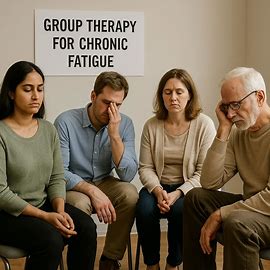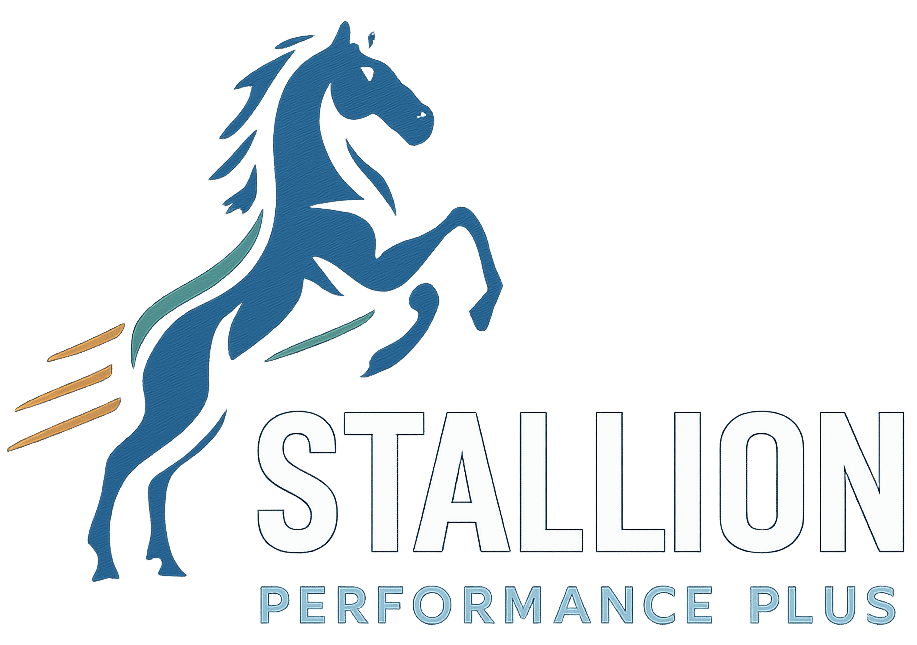Chronic Fatigue Syndrome (CFS) sounds straightforward, but it goes way beyond the usual tiredness. It’s an overwhelming fatigue that doesn’t get better with rest and really messes with your daily life. We’re talking struggles with memory, headaches, and even muscle pain. Imagine feeling like you just ran a marathon when all you did was get out of bed—that’s the daily grind for someone with CFS.

You might be more familiar with the term Myalgic Encephalomyelitis (ME), which is often thrown into the mix with CFS. Despite affecting up to 2.5 million Americans according to recent statistics, it still remains a mystery of sorts, often overlooked or misunderstood by both public and healthcare professionals alike. Understanding its impact is the first step toward improving the quality of life for those who have it.
Dealing with CFS doesn’t mean just dealing with being physically wiped out. It also dives deep into mental health territory. Think depression, anxiety, and that heavy feeling of being alone in what you’re dealing with. It’s a lot, but knowing this can help both patients and loved ones better navigate the journey.
Getting the right diagnosis for CFS is like finding the right map before heading out on an adventure. You need a thorough medical workup to rule out other conditions that might mimic its symptoms. With a proper diagnosis, you open up the possibility of managing CFS effectively, paving the way to living a fuller, more manageable life. So what’s the takeaway? Don’t hesitate to seek out a healthcare professional if these symptoms hit home. A supporting guide on this rugged trail makes all the difference.
The Four P’s for Managing Chronic Fatigue (CDC)
Let’s break down the Four P’s brought to us by health experts as a brilliant toolkit for managing chronic fatigue. It’s simple yet life-changing: Problem-solving, Planning, Prioritizing, and Pacing. These aren’t just buzzwords but practical tools you might already be using without even knowing. They can make a huge difference in how you handle your energy day-to-day, especially if CFS is a part of your life.
Problem-solving is about tackling those tricky situations that sap your energy. Think about the times when balancing tasks feels like walking a tightrope. Break them into steps. It’s like creating stepping stones rather than a hurdle. This way, the tasks seem more doable and, well, less draining.
Planning is your best friend when it comes to time management. From scheduling tasks to planning rest periods, having a roadmap keeps surprises from throwing you off balance. It’s about finding that sweet spot where you’re productive but not overworked.
Prioritizing helps keep your to-do list realistic. It’s not about squeezing in everything but figuring out what truly deserves your time and attention. When everything feels essential, remind yourself—it’s alright to leave some tasks for another day.
Pacing is crucial. It’s the art of spreading out energy use to avoid crashes. Think of yourself as a battery—you’ll last longer if you pace yourself. Rather than pushing through exhaustion, giving yourself breaks can recharge your energy in spurts.

The Four P’s aren’t just principles; they’ve been field-tested by those living with CFS who’ve turned their experiences into a guide for others. By weaving them into your routine, managing chronic fatigue becomes less daunting and more of a planned approach.
Lifestyle Modifications to Combat Fatigue (Arthritis Movement)
Lifestyle tweaks can be game-changers for those wrestling with chronic fatigue syndrome. Forget major overhauls—small, smart changes are the secret weapons here. They come packed with benefits, kicking fatigue to the curb while promoting overall well-being.
Sleep is where it all begins. Shooting for seven to nine hours of quality shut-eye can set the tone for your entire day. This means staying consistent with your sleep schedule, regardless of what the clock says or any late-night TV temptations.
Hydration isn’t just a summer thing—it’s a daily necessity. Keeping hydrated fuels energy levels throughout the day, so have that water bottle handy as a constant companion. It’s surprising how much a hydrated body can shake off that sluggish feeling.
Eating begins with balance, and we’re not talking about plate-balancing skills. Think of meals heavy on fruits, veggies, and whole grains. Go for smaller, frequent meals to keep those energy levels steady rather than falling into the cycle of huge meals that can make you feel more sluggish.
Getting active, even a little, helps boost those energy reserves. But remember, it’s about finding what fits without overexerting. Walks, yoga, or even light stretching routines can energize without draining.
Stress management might sound like something from a wellness brochure, but it’s serious business when dealing with fatigue. Finding ways to unwind, be it meditation or a hobby like painting or gardening, can lighten the load of daily stress.
Lastly, watch the intake of alcohol and caffeine. Alcohol can disrupt sleep, and caffeine, especially in the afternoon, can lead to energy crashes later. It’s all about finding the right balance that suits you.
These lifestyle shifts, endorsed by the Arthritis Movement, are not just theoretically beneficial—they’ve been lifesavers for many dealing with CFS. They offer a realistic pathway to better energy management, contributing to a fuller, more vibrant life.
When to Seek Professional Help for Persistent Fatigue
Everyone experiences those off days where fatigue feels never-ending, but here’s the thing—if this overwhelming tiredness becomes your ‘normal,’ it’s a signal that something might be off. That’s when a healthcare provider steps in to help pinpoint the real cause behind it.

Persistent fatigue can sometimes be a clue to underlying health issues, like anemia, thyroid imbalances, or other conditions that might not be immediately obvious. A thorough medical check-up can help rule out or confirm anything lurking beneath the surface that needs attention.
Ignoring these signals can often lead to more stress, exacerbating the fatigue cycle. Medical professionals are equipped to peel back the layers and get to the root, ensuring any medical conditions are managed appropriately. It’s all about getting to know your body’s rhythms and responding to them with care.
Besides identifying underlying conditions, doctors can work with you to create a tailored fatigue management plan. This plan is a team effort, focusing on not just treatment, but sustainable lifestyle changes specific to what your body needs.

Trusting in professional guidance doesn’t mean surrendering control over your health. Instead, it’s about empowerment, knowing that you’re equipped with the right tools and knowledge to push back against fatigue with confidence. That’s how you increase your quality of life.
If your fatigue is relentless, listen to your body. Seeking medical advice isn’t hitting a panic button; it’s taking a proactive step towards feeling more like yourself again.
Here’s a little transparency: Our website contains affiliate links. This means if you click and make a purchase, we may receive a small commission. Don’t worry, there’s no extra cost to you. It’s a simple way you can support our mission to bring you quality content.”
Comments Below

This is a really helpful, well-rounded article. I especially appreciate how you broke down the “Four P’s” (Problem-solving, Planning, Prioritizing, Pacing) — those feel like concrete tools people can apply immediately rather than vague advice. The focus on small lifestyle tweaks (sleep, hydration, etc.) also hits home — often it’s the subtle shifts that make the biggest difference. One question: have you come across evidence or experience that shows whether combining pacing + medical check-ups leads to better outcomes than doing lifestyle changes alone?
Hanna, I really appreciate you taking the time to comment. I first learned of CFS a few years ago as my Mother suffered from it. Back then it was all about taking Meds which didn’t solve the problem. My Mother and I discussed things that could help her that were not radical and didn’t require more Meds.
Being a Fitness Advocate and always taking care of myself, I got her on a mild fitness program, better foods, and consistency in following through. It made a big difference.
To answer your question, I believe that a combination of Med check-ups, Pacing, and Lifestyle changes will provide the best results.
Thanks Again
Helpful, level-headed roundup. What’s moved the needle for me has been ruthless sleep consistency, “energy envelope” pacing (timers + breaks), light zone-2 walks, electrolytes, and an evening low-stim routine—small, boring wins that add up.
Two Qs to keep the thread useful: how do you advise pacing without sliding into deconditioning, and which baseline checks (iron, thyroid, B12, sleep apnea) do you suggest people rule out early with their doctor? Also curious if you’ve seen solid outcomes with low-dose naltrexone or HRV-guided training in chronic fatigue cases.
Marios
Good Questions,
Naltrexone, according to studies, acts as an anti-inflammatory for the spinal cord at the Base of the Brain. It is receiving lots of positive reviews so far. Since the cause of CFS is still unknown, it remains under study. Worth speaking with your doctor to see if it’s a fit.
Heart Rate Variability (HRV) is another tool in the belt for those suffering from CFS. Training the Nervous system to help determine the difference between Acute and Chronic Fatigue is invaluable. There are different excercises one can perform to get a handle on this condition.
Here is a couple of Links for more information:
How To Use Heart Rate Variability To Manage Chronic Fatigue – Anna Marsh
Finding Hope and Relief: Low Dose Naltrexone (LDN) for Chronic Fatigue – LDN Doctor
Hope this helps and keep in touch to let me know what you discover.